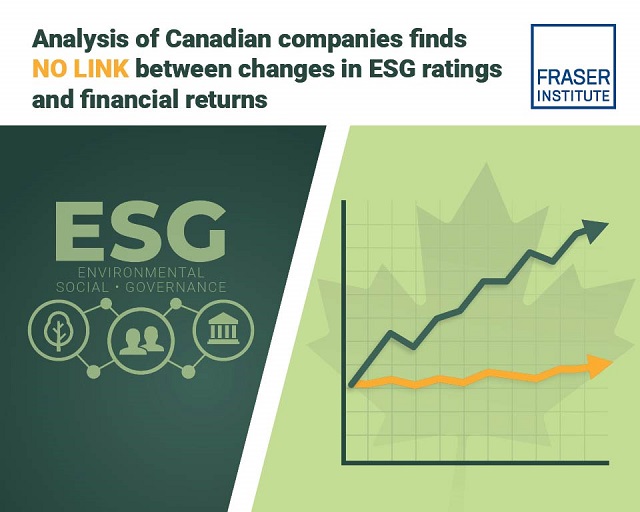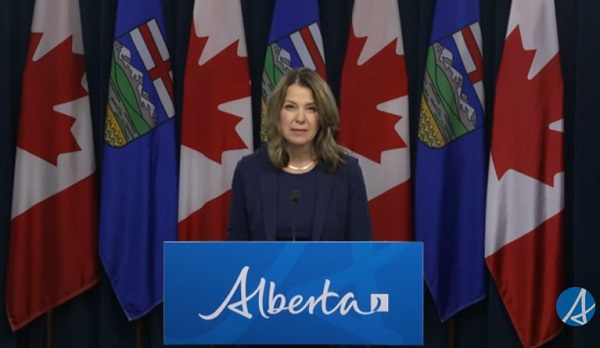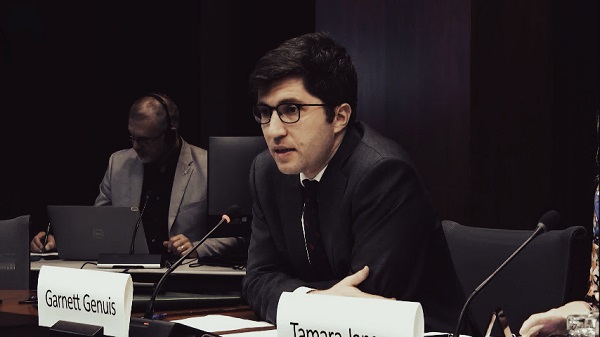Economy
ESG rankings have no significant effect on investment performance of Canadian public companies

From the Fraser Institute
Despite claims to the contrary, the ESG rankings of publicly-traded Canadian companies have no significant effect on investment returns, finds a new study published today by the Fraser Institute, an independent, non-partisan Canadian
public policy think-tank.
“While government regulators and some industry executives promote the benefits of ESG investing, there’s no evidence of significant advantages for investors,” said Steven Globerman, senior fellow at the Fraser Institute and author of ESG Investing and Financial Returns in Canada.
Environmental, social and governance (ESG) is a movement designed to pressure businesses and investors to pursue larger social goals. In Canada, due to government securities regulation, publicly-traded companies must disclose ESG-related
information on a range of issues including environmental impact, human rights, and equity and inclusion.
ESG advocates claim that government-mandated ESG disclosures improve the financial performance of companies.
However, the study—the first empirical analysis of the relationship between changes in the ESG rankings of Canadian publicly-traded companies and equity returns— tracked 310 companies on the Toronto Stock Exchange from 2013 to 2022 and found no significant relationship between changes in ESG ranking (upgrades or downgrades) and financial returns, as measured by the price of shares and dividend income.
In other words, advocates for greater ESG disclosures cannot accurately claim—based on Canadian evidence—that requiring companies to provide more information for ESG rankings will significantly affect the financial performance of Canadian
investors.
“Better performance on ESG rankings simply does not translate into better financial performance for Canadian firms,” Globerman said.
- ESG investing incorporates environmental (E), social (S), and governance (G) considerations into investment decisions. Until recently, ESG-themed investing comprised an increasing share of investments made by professional money managers and retail investors.
- Financial industry executives and regulators who have promoted ESG-themed investing argue that it will enhance investment performance either by increasing asset returns and/or by reducing investment risk.
- However, empirical studies, on balance, find no consistent and statistically significant evidence of a positive relationship between the ESG rankings of individual companies or portfolios of companies and the financial performances of those companies or investment portfolios.
- Most empirical studies have focused on US-based publicly traded companies. To our knowledge, this study is the first to focus on returns to ESG-themed investing for Canadian-based public companies.
- Using data from MSCI, a leading ESG ratings provider, we estimate the statistical relationship between changes in ESG rankings of companies and changes in equity returns for those companies using a sample of 310 companies listed on the Toronto Stock Exchange between 2013 and 2022.
- Our study finds that neither upgrades nor downgrades in ESG ratings significantly affect stock market returns.
 Read the Full Report
Read the Full Report
Author:
Business
‘TERMINATED’: Trump Ends Trade Talks With Canada Over Premier Ford’s Ronald Reagan Ad Against Tariffs


From the Daily Caller News Foundation
President Donald Trump announced late Thursday that trade negotiations with Canada “ARE HEREBY TERMINATED” after what he called “egregious behavior” tied to an Ontario TV ad that used former President Ronald Reagan’s voice to criticize tariffs.
The ad at the center of the feud was funded by Ontario Premier Doug Ford’s government as part of a multimillion-dollar campaign running on major U.S. networks. The spot features Reagan warning that tariffs may appear patriotic but ultimately “hurt every American worker and consumer.”
Dear Readers:
As a nonprofit, we are dependent on the generosity of our readers.
Please consider making a small donation of any amount here.
Thank you!
“They only did this to interfere with the decision of the U.S. Supreme Court, and other courts. TARIFFS ARE VERY IMPORTANT TO THE NATIONAL SECURITY, AND ECONOMY, OF THE U.S.A,” Trump wrote on his Truth Social platform late Thursday. “Based on their egregious behavior, ALL TRADE NEGOTIATIONS WITH CANADA ARE HEREBY TERMINATED.”
Ford first posted the ad online on Oct. 16, writing in a caption, “Using every tool we have, we’ll never stop making the case against American tariffs on Canada. The way to prosperity is by working together.”
The Ronald Reagan Presidential Foundation and Institute criticized the ad Thursday evening, saying it “misrepresents” Reagan’s 1987 radio address on free and fair trade. The foundation said Ontario did not request permission to use or alter the recording and that it is reviewing its legal options.
The president posted early Friday that Canada “cheated and got caught,” adding that Reagan actually “loved tariffs for our country.”
The ad splices audio from Reagan’s original remarks but includes his authentic statement: “When someone says, ‘let’s impose tariffs on foreign imports’, it looks like they’re doing the patriotic thing by protecting American products and jobs. And sometimes, for a short while it works, but only for a short time.”
Reagan also noted at the end of his remarks that, in “certain select cases,” he had taken steps to stop unfair trade practices against American products and added that the president’s “options” in trade matters should not be restricted, which the ad did not include.
Since returning to the White House, Trump has imposed tariffs on Canadian aluminum, steel, automobiles and lumber, arguing they are vital to protecting U.S. manufacturing and national security.
The Supreme Court is set to hear arguments in November over whether the administration overstepped its authority by invoking the International Emergency Economic Powers Act to impose reciprocal tariffs on dozens of nations, including Canada. Tariffs on commodities such as steel, aluminum and copper were implemented under Section 232 of the Trade Expansion Act and are not currently being challenged, as they align with longstanding precedent established by prior administrations.
Thursday’s move marks the second time this year Trump has canceled trade talks with Ottawa. In June, he briefly halted discussions after Canada imposed a digital services tax on American tech firms, though the Canadian government repealed the measure two days later.
Business
A Middle Finger to Carney’s Elbows Up

Elbows Up Stengthens U.S. Tariff Resolve at Canada’s Expense
The disastrously misguided “Elbows Up” campaign championed by the Carney government rooted in the fantasy that a smug, arrogant Liberal elite wields leverage over the largest economy in human history, has suffered yet another devastating blow. The latest fallout: U.S.-based truck manufacturer Paccar Inc., maker of iconic heavyweights such as Kenworth and Peterbilt, is slashing Canadian production and laying off hundreds of workers in anticipation of a 25-per-cent U.S. import tariff set to take effect next month.
Employees at Paccar’s Sainte-Thérèse, Quebec plant were informed Wednesday that the company will move production of trucks destined for the U.S. market back to its American facilities. According to Daniel Cloutier, Quebec director for Unifor, approximately 300 jobs will be eliminated, leaving roughly 500 workers at the plant.
Honking for Freedom Substack is a reader-supported publication.
To receive new posts and support my work, consider becoming a free or paid subscriber.
“They will continue building trucks for the Canadian market,” Cloutier said, noting that domestic demand represents a much smaller portion of output. At its peak, the plant produced 96 trucks per day; production will now drop to just 18 units daily. That is an 81% drop.
Paccar declined to confirm the restructuring or provide additional details. However, in a financial earnings call a day earlier, CEO Preston Feight described the U.S. tariff policy as advantageous for the company. “I think it helps Paccar significantly,” Feight said. “It gives us a competitive leg up from where we’ve been.”
U.S. Tariffs Driving Industry Shift
U.S. President Donald Trump has confirmed that all medium and heavy-duty trucks imported into the United States will face a 25-per-cent tariff beginning Nov. 1, along with an additional 10-per-cent duty on buses. The tariffs are being imposed under Section 232 of the Trade Expansion Act, which targets imports deemed to pose a national security risk.
These measures follow earlier tariffs that have already struck Canadian steel, aluminum, automobiles, copper, and lumber, forcing companies to shelve investments and reconsider their North American strategies.
Broader Auto Sector Retrenchment
Other automakers are also pulling back production in Canada. General Motors announced Tuesday it is ending production of the Chevrolet BrightDrop electric delivery van in Ingersoll, Ontario, costing over 1,100 workers their jobs. Stellantis recently confirmed plans to shift production of the Jeep Compass from Brampton, Ontario, to Belvidere, Illinois, as part of a strategy to increase U.S. output by 50 per cent by 2029.
Quebec Plant at Risk
The Sainte-Thérèse plant, which manufactures Class 5, 6 and 7 Kenworth and Peterbilt trucks, has already endured two rounds of layoffs over the past year as uncertainty around tariffs weakened demand. At peak production, the facility employed over 1,400 people.
Cloutier said the union is pressing both the Quebec and federal governments to prioritize the purchase of domestically made vehicles to sustain production levels. Without such measures, he warned, the plant could be forced to close due to high fixed costs and insufficient volume. “Let’s not pretend global trade hasn’t changed with this President,” Cloutier said. “We need to stop twiddling our thumbs.”
Bus Manufacturers Also Exposed
Quebec is also home to two major bus manufacturers, Prevost and Nova Bus, both owned by Volvo Group that could face similar challenges due to new tariffs on buses entering the U.S. Executives at both companies say they are still assessing the impact of the policy shift.
What can we learn from all this?
Perhaps our deep reliance on American innovation has consequences we have been unwilling to confront. The warning signs were evident well before Donald Trump’s election. He was explicit that tariffs would be used as a strategic tool to financially incentivize American companies to return to the United States. This was not hidden, it was a core pillar of his economic agenda.
I have said repeatedly on the Marc Patrone Show on Sauga 960 that my frustration is not with America’s strategy, but with Canada’s political class. Their smug arrogance lies in the belief that, as great as Canada can be, we could somehow dominate the greatest economy in the history of civilization rather than work with it. The Trump administration never wanted Canada to become the 51st state; they want our valuable resources and are willing to pay fair value for them, and they expect Canada to finally take our internal security threats seriously; something I have personally presented on in the United States. Yet instead of leveraging our strategic position, Canada’s leadership chose performative resistance over pragmatic partnership.
The most telling moment came when President Trump reportedly asked Justin Trudeau what would happen if the United States imposed a 25-per-cent tariff on all Canadian goods. Trudeau’s response, “It would destroy Canada” was an example of catastrophic stupidity. It handed Trump the gun he could use to execute Canada economically and perhaps cost Canada its sovereignty over the long term.
Reminiscent of the scene from The Hunt for Red October, when Captain Tupolev, in an act of smug Laurentian style arrogance, fires a torpedo at Ramius only for it to circle back and destroy his own submarine, a catastrophic miscalculation born of arrogance and a complete misunderstanding of the enemy’s capabilities. A catastrophic miscalculation that mirrors Elbows Up stupidity.
Order Now!
Honking For Freedom – The Trucker Convoy That Gave Us Hope HonkingForFreedom.com
Twitter | Locals | Rumble | Instagram
www.BenjaminjDichter.com
Audio
Freedom Coffee Podcast
Honking for Freedom Substack is a reader-supported publication.
To receive new posts and support my work, consider becoming a free or paid subscriber.
-

 Business1 day ago
Business1 day ago$15B and No Guarantees? Stellantis Deal explained by former Conservative Shadow Minister of Innovation, Science and Technology
-

 Health20 hours ago
Health20 hours agoFor Anyone Planning on Getting or Mandating Others to Get an Influenza Vaccine (Flu Shot)
-

 Alberta1 day ago
Alberta1 day agoPremier Smith moves to protect Alberta in International Agreements
-

 Business20 hours ago
Business20 hours agoLiberals backtrack on bill banning large cash gifts, allowing police to search Canadians’ mail
-

 Agriculture1 day ago
Agriculture1 day agoFrom Underdog to Top Broodmare
-

 Sports20 hours ago
Sports20 hours ago‘We Follow The Money’: Kash Patel Says Alleged NBA Ties To Mafia Just ‘The Start’ Of FBI Investigation
-

 Alberta2 days ago
Alberta2 days agoAlberta’s licence plate vote is down to four
-

 Bruce Dowbiggin2 days ago
Bruce Dowbiggin2 days agoIs The Latest Tiger Woods’ Injury Also A Death Knell For PGA Champions Golf?









